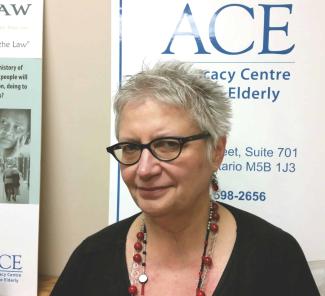Interview with Judith Wahl
Digital content found in the UTSC Library's Digital Collections are meant for research and private study used in compliance with copyright legislation. Access to digital, and the technical capacity to download or copy it, does not imply permission to re-use. Prior written permission to publish, or otherwise use content, must be obtained from the copyright holder. Please contact the UTSC Library for further information.
Cite this object

Judith Wahl, lawyer and Executive Director of the Advocacy Centre for the Elderly, shares the story of her activism from her days as an undergraduate at the Univeristy of Toronto participating in sit-ins to protest the closing of the main library to undergraduate students to her current role advocating for the rights of seniors. Wahl talks about her experience as a woman studying law at a time when there were not many women in her class as Osgoode and she was the only woman at the firm where she first practiced law. She talks about her involvement in public policy changes in the field of elder care, such as the Substitute Decisions Act, the Retirement Homes Act, and the Health Car Consent Act. In sharing her personal philosphy on advocacy, Wahl talks about how important it is that people be heard. In her own words, "Advocacy means speaking up, but speaking up with an informed voice."